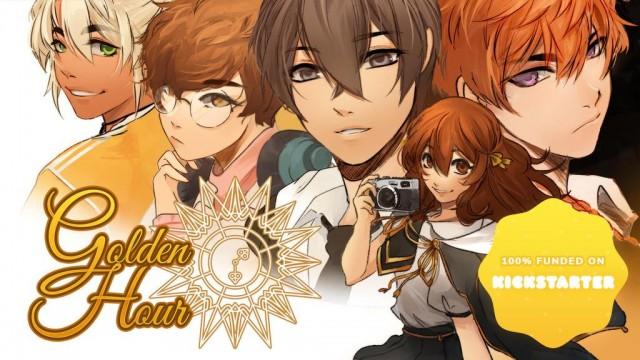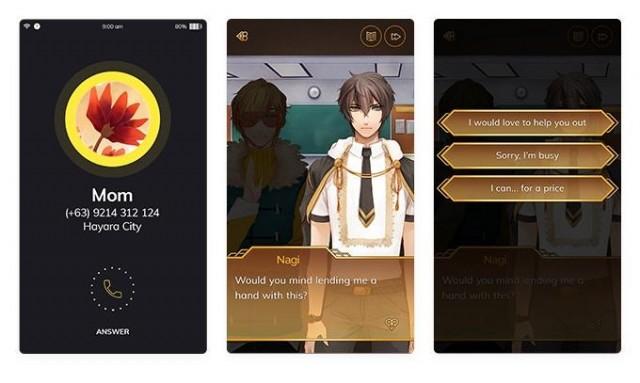'Golden Hour': Time for this Pinoy-inspired otome mobile game to shine
Picture this: You’re a young girl who just moved to a different city in the Philippines, and you’re feeling the pressure of having to deal with so many changes at once.
As you go about your day-to-day activities, you are faced with options that determine your path — choices that further entangle you in a web of colorful adventures, adolescent romance, and a hint of mystery.
Feel like you just read the summary of a young adult novel? It’s actually the plot of an upcoming Pinoy-developed mobile game.
A golden opportunity for representation
Named after the Japanese word for “maiden,” otome games are story-based games that typically revolve around the main playable character (a female) successfully winning the affection of one of her potential love interests.
Such games incorporate gameplay elements such as stat boosts and minigames to enhance the experience. Think of them as the digital equivalent of choose-your-own-adventure novels, but specifically aimed at romance fiction enthusiasts. Unsurprisingly, otome games are often referred to as “visual novels.”

Neophyte game developer Matchaa Studio's debut offering, Golden Hour, is an otome game set in the fictional city of Haraya (a Filipino word for “imagination”). According to head writer Ari Santiago, the game derives its name from two driving elements: photography and time.
“Photography is the main character’s driving passion,” explains Ari, “and within photography is the concept of the 'golden hour', a time of day when natural light acquires a special golden tinge.”
As for the time aspect, Ari relates it to the gameplay, which rewards players and guides them toward more favorable endings for playing through sequences following a specific schedule. “It’s all about seizing the opportunity and capturing that special moment,” says Ari.
What sets "Golden Hour" apart from other otome games is its Pinoy-inspired setting. Most of the games in the genre are set in Japan or in an alternate reality.
As Tori Tadiar, the game’s character designer, shares: “When we came up with the idea for Golden Hour, we wanted an otome game that can do the same thing for Philippine culture to the global otome audience.”
The choice to come up with a fictional setting was largely influenced by the team’s desire to depict not just what the Philippines is, but also what it can be.
Located on an island of reclaimed land, Haraya City is controlled by rich families and largely dependent on its local tourism and outsourcing industries for economic growth.
Tori says that “[the city] has the same problems we have - political sides and economic inequalities, which our young characters still navigate in their day-to-day; but it’s also a cosmopolis of opportunity.” Likening it to Black Panther's Wakanda, Tori quips that in this alternate take on the Philippines, “dialogue is valued in social media and MRTs don’t break down!"
True to tried-and-tested tropes

Expect to see far more than just references to nipa huts or adobo in Golden Hour, though.
As otome games have been largely shaped by Japan (particularly during the genre’s nascent stages) and Korea (in terms of popularizing the genre), cultural influences from both countries have become deeply ingrained in the genre.
As such, "Golden Hour" features names and designs that may remind you of anime or manhwa (Korean comics), masterfully blended with Pinoy culture.
“Fun fact: even our group name, “Matchaa Studio”, is a combination of Japanese Matcha, Korean Cha, and Filipino Tsaa, all pertaining to tea,” adds Tori.
The team believes that the best way to represent Filipino culture in gaming is to reach an international audience, which in turn involves delivering universal experiences.
Ari describes "Golden Hour" as a high school romance-type story styled after shoujo manga (Japanese comics aimed at a female audience). “Over the course of multiple playthroughs, you get to choose different characters and strive for different endings.”
“Golden Hour was meant to be a throwback to high school, minus the schoolwork -- the carefree friendships, the fun banter, the busy preparations for school events,” says Tori.
As for what’s next after Golden Hour? “Nothing specific,” states Ari, explaining that they’re still deciding on what they can work on as a group. Tori affirms, though, that whether they decide to come up with another visual novel game or venture into another genre, their focus will be on delivering “compelling stories and memorable game experiences.”
Sounds like a choice that leads to a good ending, doesn’t it? — LA, GMA News
Golden Hour has been successfully funded via Kickstarter, and the team is currently wrapping up its development. The game will be available on Google Play and App Store sometime in March 2019. You may download the Demo version of the game from the Matchaa Studio website



